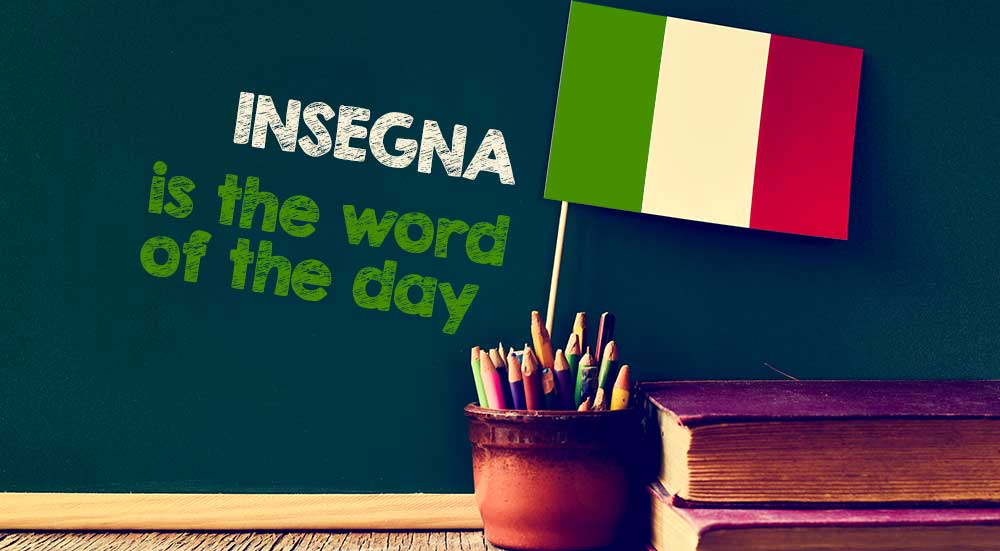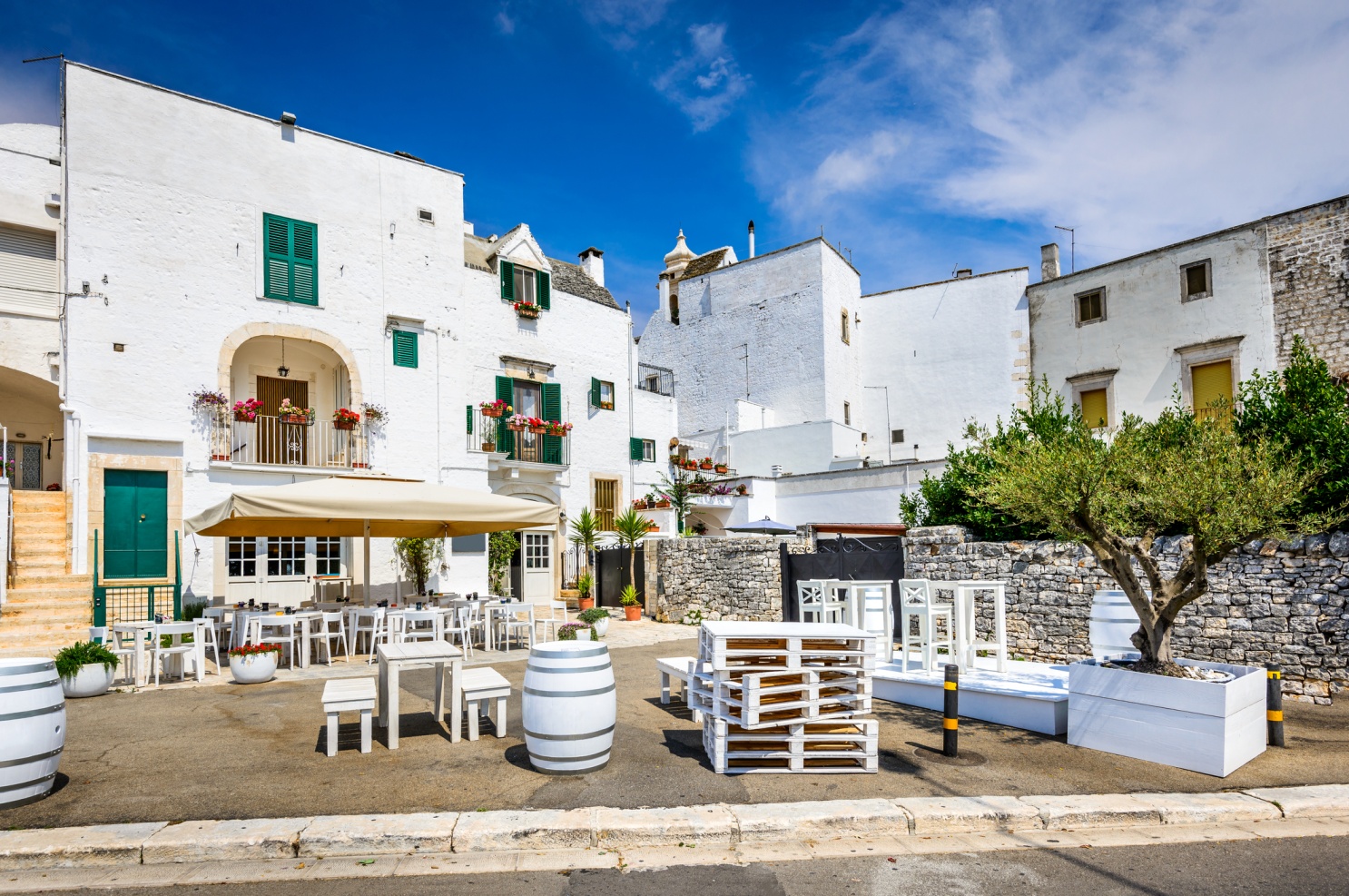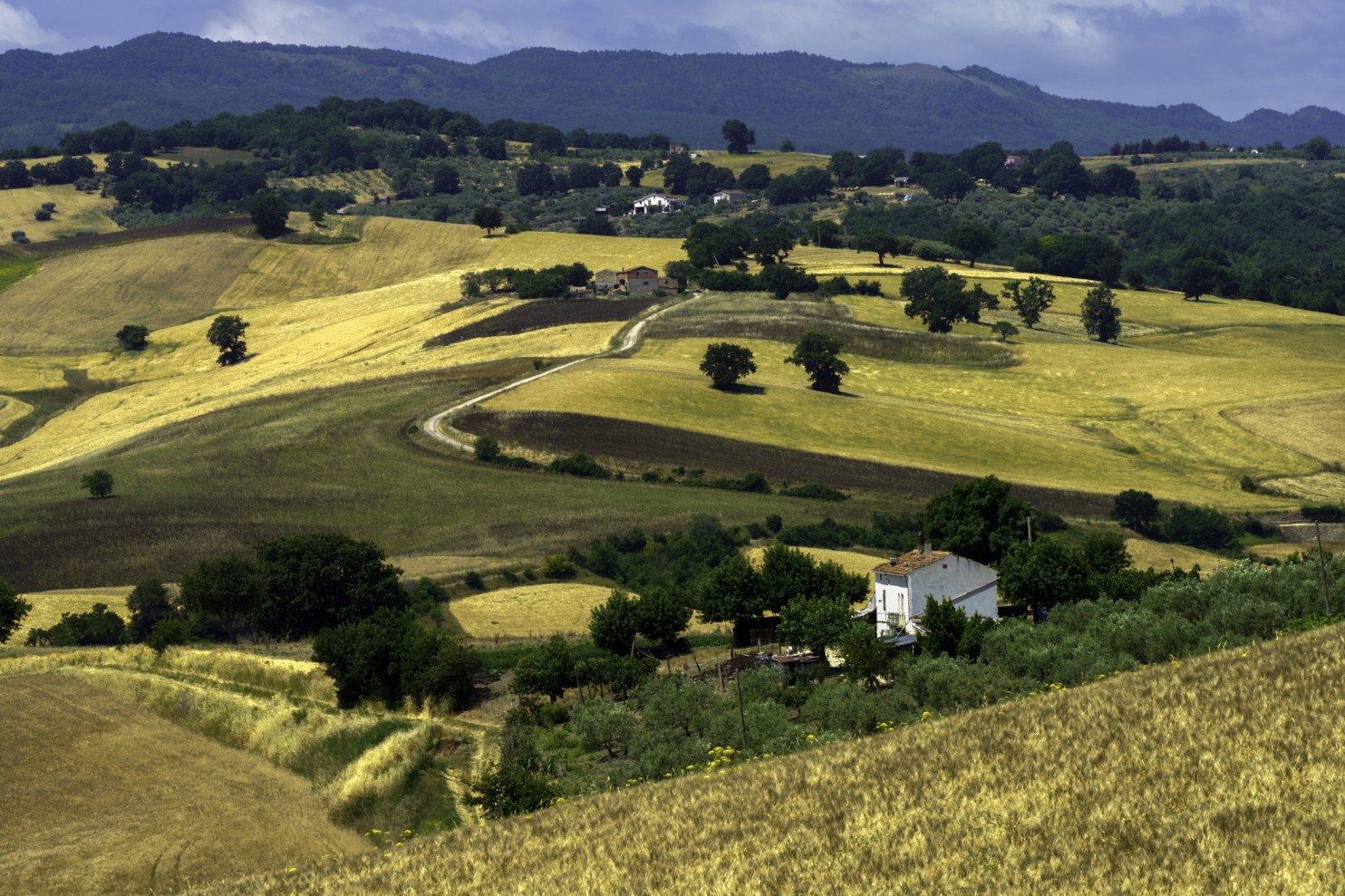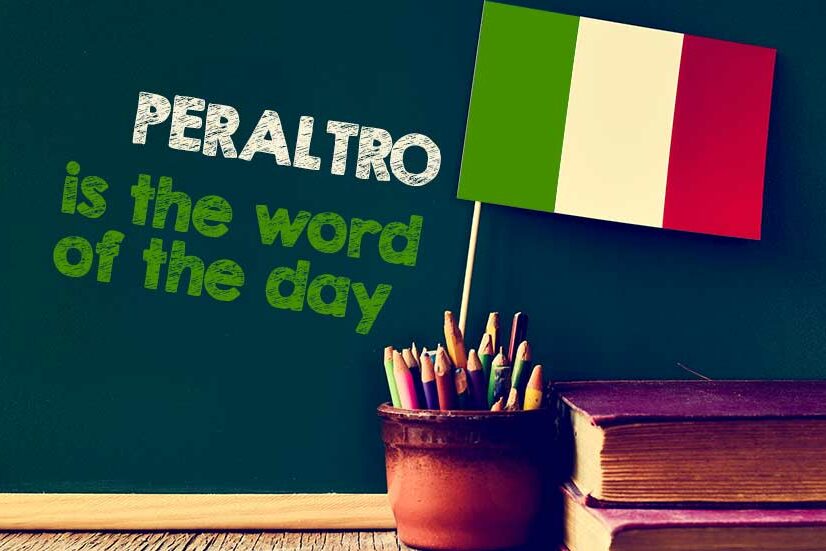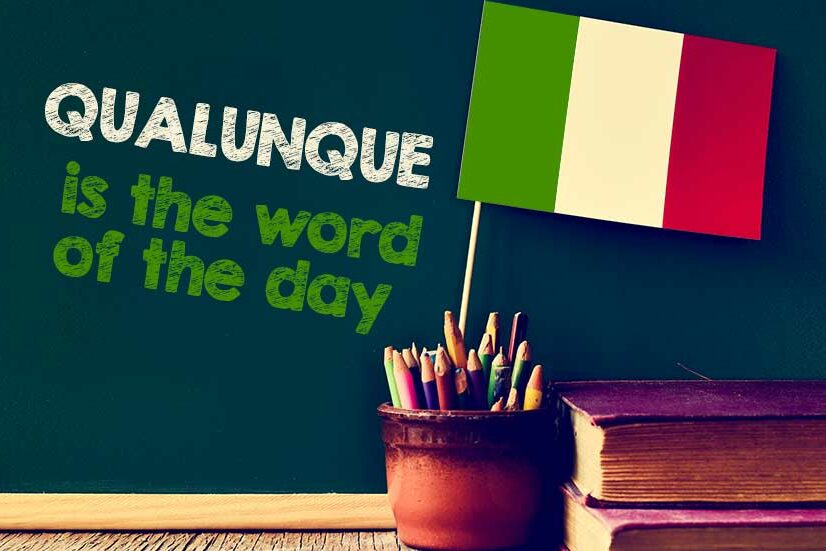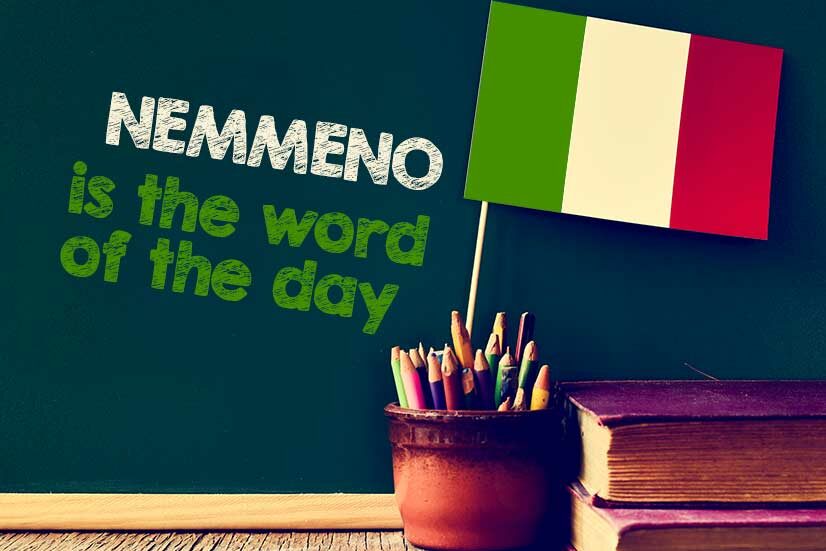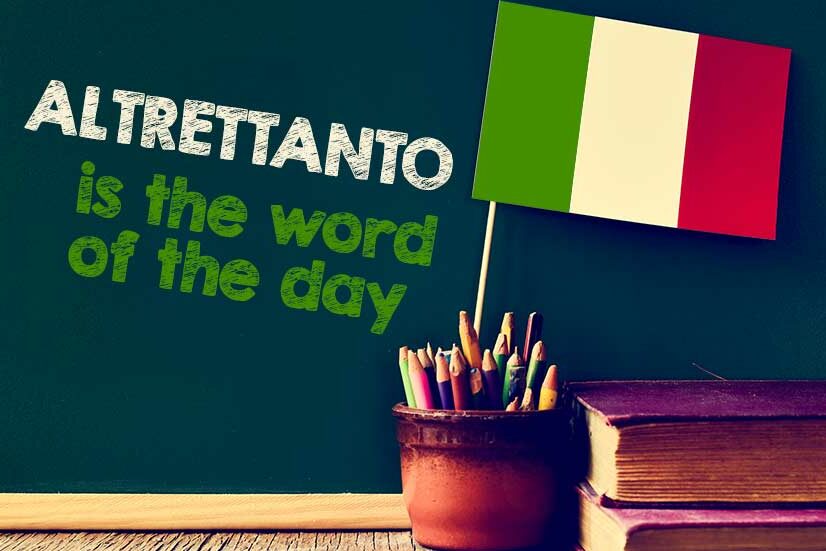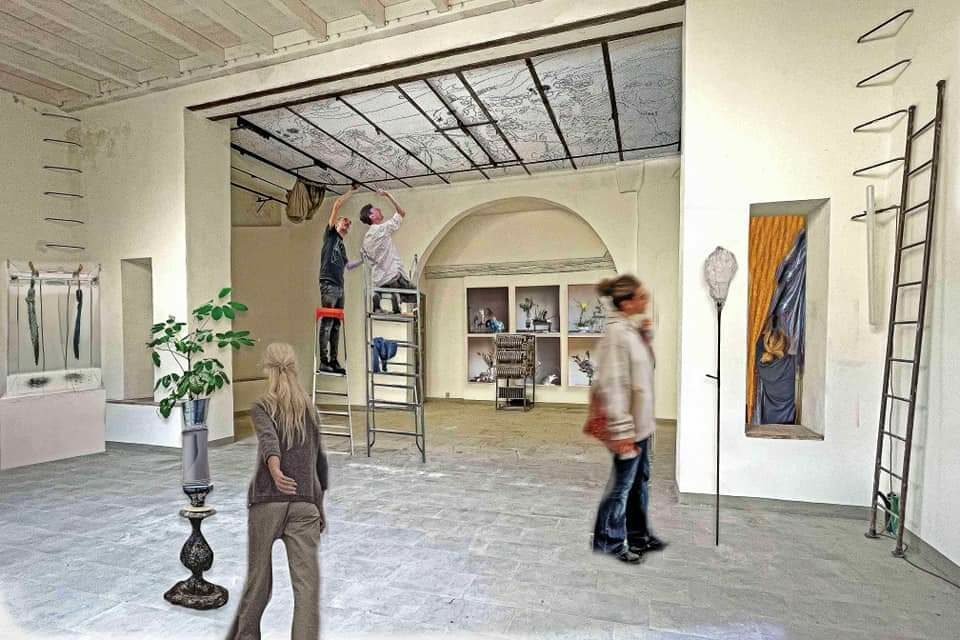Today’s word is, quite literally, everywhere. Times Square, Oxford Circus… there are so many there! The Italian term insegna (een-sai-ñah) primarily translates to “sign” or “banner” in English, though it can also refer to a “billboard” depending on context.
As with many other words in the Bella Lingua, it too derives from Latin, more specifically from the neuter noun insigne and, even more precisely, from its plural insignia, which meant “banner,” just like in Italian, but also “badge.” The old Latin, though, had a very military connotation, as insignia often referred to distinctive marks or emblems used to signify rank or affiliation. Over time, the meaning broadened from a symbol of military distinction to include any type of sign or emblem used for identification or advertising purposes.

The use of insegna in Italian can be traced back to the Middle Ages when signs and banners were used to identify the residences of nobles or the headquarters of guilds. These signs were often elaborately decorated to reflect the status or trade of the inhabitants, and we can imagine they were quite beautiful at times, just like those we are used to seeing today.
Insegna is a very common word, so you can use it in all contexts and registers. Mind though, because it usually refers strictly to commercial signs, such as those of stores, bars, and restaurants, as well as hotels. You can say, for instance, L’insegna del ristorante è molto colorata (“The restaurant’s sign is very colorful”).
Pay attention, however, to the historical and military meaning of insegna, which may no longer be the most common, but is still very much in use, as in Gli eserciti medievali portavano insegne per distinguersi in battaglia (“Medieval armies carried banners to distinguish themselves in battle”).
Ogni negozio aveva un’insegna unica sopra l’entrata
Every shop had a unique sign above the entrance
La vecchia insegna è stata sostituita con una più moderna e visible
The old sign has been replaced with a more modern and visible one

